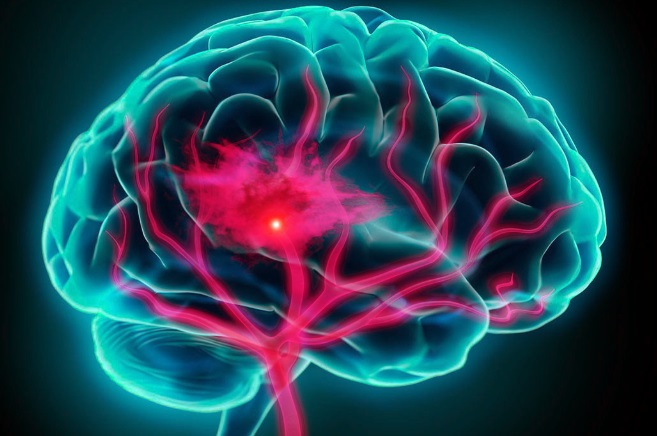Nikhil Prasad Fact checked by:Thailand Medical News Team Jan 21, 2025 1 year, 1 week, 5 days, 11 hours, 5 minutes ago
Medical News: Cerebral ischemia, commonly referred to as a stroke, remains one of the leading causes of disability and death worldwide. Despite advancements in medical science, effective treatments for mitigating the long-term effects of cerebral ischemia are still limited. Recent research spearheaded by an international collaboration of experts highlights a promising avenue: targeting mitochondrial dysfunction. This
Medical News report explores the critical findings of this comprehensive study and its implications for future treatment approaches.
 Targeting Mitochondrial Dysfunction in Cerebral Ischemia for Better Outcomes
Targeting Mitochondrial Dysfunction in Cerebral Ischemia for Better Outcomes
The research team includes scientists from Zaporizhzhia State Medical and Pharmaceutical University, Ukraine, the University of Bergen, Norway, and Ternopil State Medical University, Ukraine. Their findings delve into the vital role of mitochondria in neuronal health and the ways dysfunction in these cellular powerhouses contributes to brain damage during ischemic events.
The Role of Mitochondria in Brain Health
Mitochondria are often called the "power plants" of the cell, generating the energy necessary for various cellular processes. However, their role extends far beyond energy production. They regulate calcium levels, manage reactive oxygen species (ROS), and oversee apoptosis (programmed cell death). In the brain, these processes are especially crucial because neurons demand high energy levels to maintain functions such as signaling, neurotransmitter release, and repair mechanisms.
During cerebral ischemia, the blood supply to parts of the brain is reduced or completely blocked, depriving cells of oxygen and glucose. Mitochondrial dysfunction becomes a key player in this process, leading to oxidative stress, calcium overload, and neuronal death.
Key Findings from the Study
The researchers outlined several pivotal insights into how mitochondrial dysfunction contributes to cerebral ischemia:
1. Energy Imbalance and Oxidative Stress
When deprived of oxygen, mitochondria produce excessive ROS, which damages cellular structures, including proteins, lipids, and DNA. This triggers a cascade of harmful processes, such as the opening of mitochondrial permeability transition pores (PTPs), which disrupt energy production.
2. Apoptosis and Cell Death
The study revealed that mitochondrial dysfunction leads to the release of pro-apoptotic factors like cytochrome C into the cytoplasm, activating pathways that cause cell death. This process is amplified during ischemic conditions, resulting in significant neuronal loss.
3. The Role of Key Proteins
Proteins such as HIF-1 and HSP70 were identified as critical in mitigating mitochondrial dysfunction. HIF-1 helps regulate oxygen delivery and adaptation to hypoxia, while HSP70 stabilizes damaged proteins and supports mitochondrial integrity under stress.
<
;br />
4. Therapeutic Potential of Antioxidants
Thiol-based antioxidants showed promise in protecting mitochondria from oxidative damage. By competing with reactive molecules, these compounds prevent the opening of mitochondrial pores and support energy metabolism.
Novel Therapeutic Approaches
The research emphasizes that effective treatment strategies must target the root causes of mitochondrial dysfunction rather than merely addressing symptoms. Some of the promising interventions discussed include:
-Thiol Antioxidants: These compounds protect mitochondrial membranes from oxidative damage.
-Neuropeptide Ligands: Drugs targeting neuropeptide receptors were shown to regulate apoptosis and support mitochondrial DNA repair.
-Energy-Tropic Drugs: Substances like coenzyme Q10 and succinic acid derivatives can restore energy balance in mitochondria.
However, the researchers caution that these treatments must be applied strategically. Current approaches often lack precision, leading to suboptimal results.
Implications and Future Directions
This study underscores the importance of mitochondria as therapeutic targets for cerebral ischemia. By addressing mitochondrial dysfunction, it may be possible to reduce the extent of brain damage, improve recovery outcomes, and enhance the quality of life for stroke survivors.
The researchers also highlight the need for further exploration of mitochondrial biology. Developing drugs that can selectively modulate mitochondrial function could revolutionize the treatment of not only cerebral ischemia but also other neurodegenerative diseases.
Conclusion
The findings of this study highlight mitochondrial dysfunction as a central factor in the progression of cerebral ischemia. By disrupting energy production, increasing oxidative stress, and triggering cell death, dysfunctional mitochondria significantly exacerbate brain damage. Addressing these issues through targeted therapies holds the promise of better outcomes for patients.
While challenges remain, this research lays the groundwork for innovative treatments that could transform stroke care. With continued collaboration among scientists and clinicians, the future of mitochondrial-focused therapies looks promising.
The study findings were published in the peer-reviewed journal: Antioxidants.
https://www.mdpi.com/2076-3921/14/1/108
For the latest on cerebral ischemia, keep on logging to Thailand
Medical News.
Read Also:
https://www.thailandmedical.news/news/covid-19-s-surprising-link-to-acute-colon-ischemia
https://www.thailandmedical.news/news/covid-19-news-south-korean-doctors-warn-that-sars-cov-2-can-cause-gastric-ischemia
https://www.thailandmedical.news/news/covid-19-news-south-korean-doctors-warn-that-sars-cov-2-can-cause-gastric-ischemia
